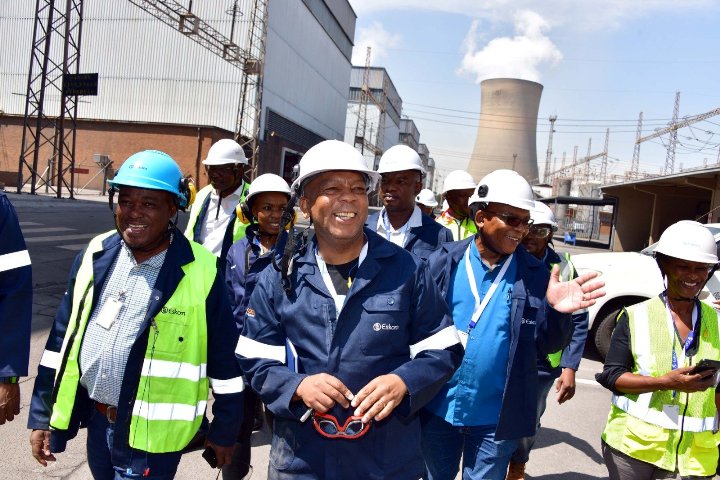Eskom's Unplanned Capability Loss Factor Shows Improvement
Minister Kgosientsho Ramokgopa highlights major strides in reducing power outages and increasing investment in independent power producers.

- Country:
- South Africa
Electricity and Energy Minister, Dr. Kgosientsho Ramokgopa, announced significant improvements in Eskom’s unplanned capability loss factor (UCLF), reflecting a healthier and more reliable power system. The UCLF has seen a marked reduction, averaging about 10,500 megawatts of unavailable capacity in the past week. This is an improvement of around 5,000 megawatts compared to the same period last year.
“This improvement has allowed us to avoid load shedding for an extended period,” Ramokgopa stated during a media briefing in Pretoria, addressing the progress in energy security and the Independent Power Producer (IPP) programme.
A Decline in Diesel Reliance
Ramokgopa underscored that the improved UCLF translates to a decreased dependence on costly diesel-powered electricity generation. Between April 1 and October 17, 2023, Eskom spent R18 billion on mitigating power cuts, which is R12 billion less than the previous year.
He highlighted that the open-cycle gas turbines (OCGT) load factor had been halved, dropping from 8.95% last year to 4.59% this year, further reducing operational costs.
“This demonstrates the improvement in Eskom’s systems, which will eventually benefit the end consumer by reducing costs,” said Ramokgopa.
Achieving a Load-Shedding-Free StandardWhile celebrating 208 days without load shedding, Ramokgopa stressed that this should not be viewed as an achievement but as a new standard.
“We should aim for no load shedding at all, and further reduce reliance on expensive fuel sources to keep the lights on,” the Minister remarked, noting that sustained improvements in electricity generation would also be supported by the Independent Power Producer programme.
Independent Power Producer (IPP) Programme Update
Ramokgopa highlighted the key role of the IPP programme, which has procured 15,432 megawatts of renewable energy since its inception in 2011. Of that, 8,231 megawatts are currently in the market for evaluation, and 1,897 megawatts are under construction.
He emphasized that the seventh administration aims to accelerate the procurement process and improve the structure and efficiency of the programme. Renewable energy projects are primarily concentrated in the Western Cape, Northern Cape, and Eastern Cape, taking advantage of optimal resources in these regions.
Job Creation and Economic Impact
In addition to increasing energy capacity, the renewable energy sector has contributed significantly to job creation, with 85,800 employment opportunities generated through the IPP programme. The initiative has also driven socio-economic transformation and attracted international and domestic investments, totaling R272 billion.
Ramokgopa emphasized that the government's focus remains on making electricity generation more affordable and competitive. By reducing reliance on expensive fuel sources and increasing the share of renewable energy, the aim is to lower electricity costs for businesses and households alike.
“The key objective of the ministry is to ensure that electricity becomes more affordable, enabling businesses to remain competitive and ensuring reliable power for households,” he concluded.
- READ MORE ON:
- Dr. Kgosientsho Ramokgopa
- Eskom
- Renewable Energy










